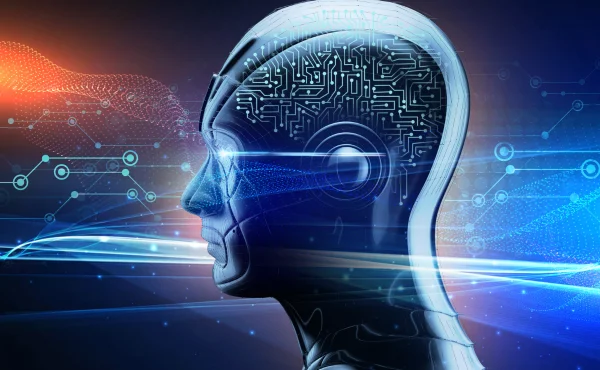In today's fast-paced digital landscape, there is an unprecedented demand for seamless customer service. Enter AI chatbots, the game changers in transforming how businesses interact with customers. These smart bots, which provide 24/7 assistance, personalized experiences, and instant responses, are ushering in a new era of customer success. As businesses use their power to improve user engagement strategies, let's look at the transformative impact AI chatbots are having on user experiences and customer satisfaction.
What Are Chatbots?
Chatbots, or artificial intelligence (AI) chatbots, are software applications designed to simulate conversations with human users over the internet. They are becoming increasingly sophisticated, using natural language processing and machine learning to understand and respond to user queries in a conversational manner. Nowadays, they're a game-changer in the field of customer engagement, providing immediate responses to customer inquiries, guiding them through various processes, and even handling complaints or issues without human intervention.
Benefits of Using AI Chatbots for Customer Engagement
24/7 Availability
Chatbots can provide round-the-clock assistance, allowing businesses to engage with customers at any time of the day, regardless of time zones or working hours.
Cost-Effective Customer Support
They can handle a large volume of inquiries simultaneously, reducing the need for human agents and cutting down on operational costs.
Instant Responses
AI chatbots can provide instant responses to user queries, improving customer satisfaction by reducing wait times.
Scalability
Chatbots can scale effortlessly to accommodate a growing user base without significant additional resources.
Consistency
Chatbots deliver consistent responses based on predefined algorithms or training data, ensuring uniformity in customer interactions.
Data Collection and Analysis
They can collect valuable data about customer preferences, behaviors, and frequently asked questions, which can be analyzed to improve products, services, and marketing strategies.
Personalization
Through machine learning algorithms, chatbots can personalize interactions based on user data, providing tailored recommendations and responses.
Efficient Task Automation
Chatbots can automate repetitive tasks such as appointment scheduling, order tracking, or FAQs, freeing up human agents to focus on more complex issues.
Enhanced User Engagement
Interactive chatbots can engage users in natural-language conversations, making interactions more enjoyable and increasing user engagement.
Multichannel Support
Chatbots can be deployed across various platforms and channels, including websites, messaging apps, and social media, providing consistent support regardless of the user's preferred communication channel.
Case studies demonstrating the impact of AI chatbots
Several businesses have reported remarkable improvements in customer satisfaction and operational efficiency after integrating AI chatbots. For instance, a well-known e-commerce platform introduced a chatbot to handle basic customer inquiries, which led to a 50% reduction in customer service operation costs and a noticeable improvement in customer satisfaction scores. Another case involved a telecommunications company that utilized chatbots for troubleshooting common problems, resulting in a 40% decrease in the volume of calls to their customer support center.
Strategies for optimizing AI chatbots to enhance the user experience
To maximize the benefits of AI chatbots, businesses should focus on continually refining their capabilities. This involves training chatbots with a wide range of potential queries to ensure accurate and relevant responses. Implementing feedback mechanisms to learn from interactions can also significantly improve performance over time. Additionally, personalizing interactions based on user data makes the experience more engaging and effective.
Role of Chatbots in Customer Engagement
When it comes to enhancing the customer experience, AI chatbots are revolutionizing the way businesses engage with their customers. By providing immediate responses and personalized assistance 24/7, chatbots have become an indispensable tool for fostering positive customer interactions and building lasting relationships. Let’s explore how to measure their effectiveness, the technologies that support their operations, and best practices for utilizing the insights they generate.
Key performance indicators for assessing AI chatbot effectiveness
To gauge the success of AI chatbots, businesses focus on a variety of key performance indicators (KPIs). These often include user satisfaction scores, response time, resolution rate, and the volume of successfully handled queries without human intervention. By monitoring these metrics, companies can understand how well their chatbots are meeting customer needs and where there's room for improvement.
Tools and technologies for monitoring AI chatbot interactions
Several tools and technologies are essential for tracking and analyzing AI chatbot interactions. Analytics platforms, for example, can provide detailed reports on chatbot conversations, identifying common customer inquiries and chatbot response accuracy. Additionally, sentiment analysis software helps in understanding the tone and emotion behind customer interactions, allowing businesses to fine-tune chatbot responses for enhanced engagement.
Best practices for improving AI chatbot performance based on data analysis
Improving AI chatbot performance starts with regular data analysis. This involves continuously updating the chatbot’s knowledge base to include new information and answers to frequently asked questions. Personalizing chatbot interactions based on user history and preferences also plays a critical role. Furthermore, integrating human support for complex issues ensures that customers always receive the help they need, thereby enhancing overall satisfaction.
The Future of AI Chatbots and Customer Success
As technology advances, AI chatbots are poised to play an even more significant role in shaping customer success strategies. Understanding upcoming trends and predicting future impacts are crucial for businesses aiming to stay ahead in customer engagement.
Emerging trends in AI chatbot technology
One of the most exciting trends in AI chatbot technology is the advancement in natural language processing (NLP), allowing chatbots to understand and mimic human conversations more effectively. Additionally, the integration of machine learning enables chatbots to learn from interactions and improve autonomously over time. Another trend to watch is the growing incorporation of voice recognition capabilities, making chatbots accessible through voice commands and expanding their usability.
Conclusion
AI chatbots have undeniably revamped the arena of customer success. By offering 24/7 support, personalized interactions, and immediate responses to queries, these intelligent systems ensure customers feel valued and understood. Their ability to handle vast volumes of requests simultaneously frees up human agents to tackle more complex issues, thereby improving overall service efficiency and customer satisfaction.
Unlock your path to unparalleled customer success with AI chatbots from On Wave Group, revolutionizing software development one interaction at a time.

